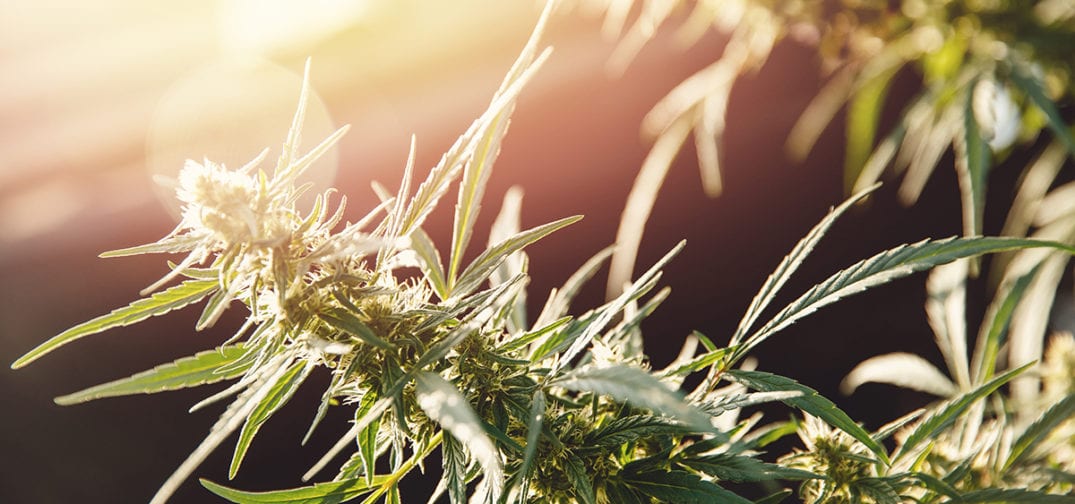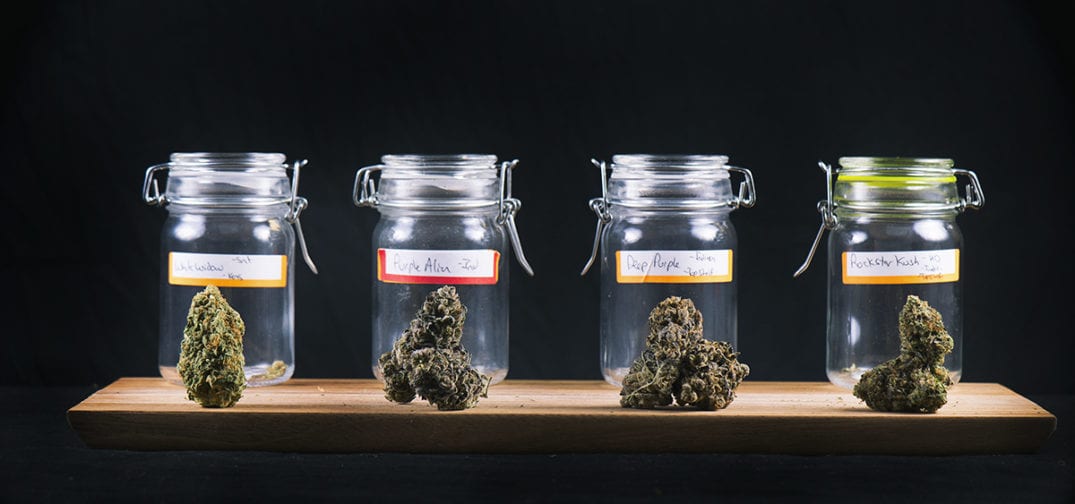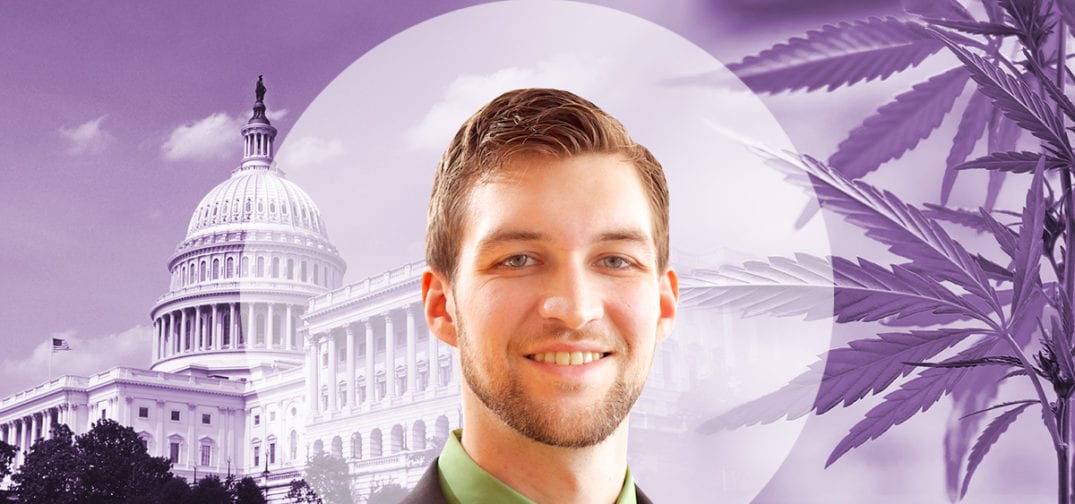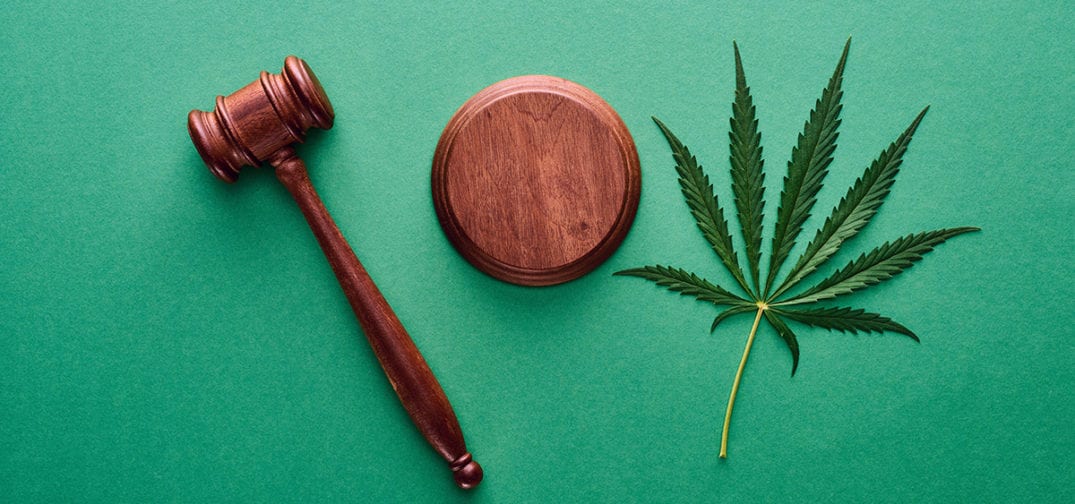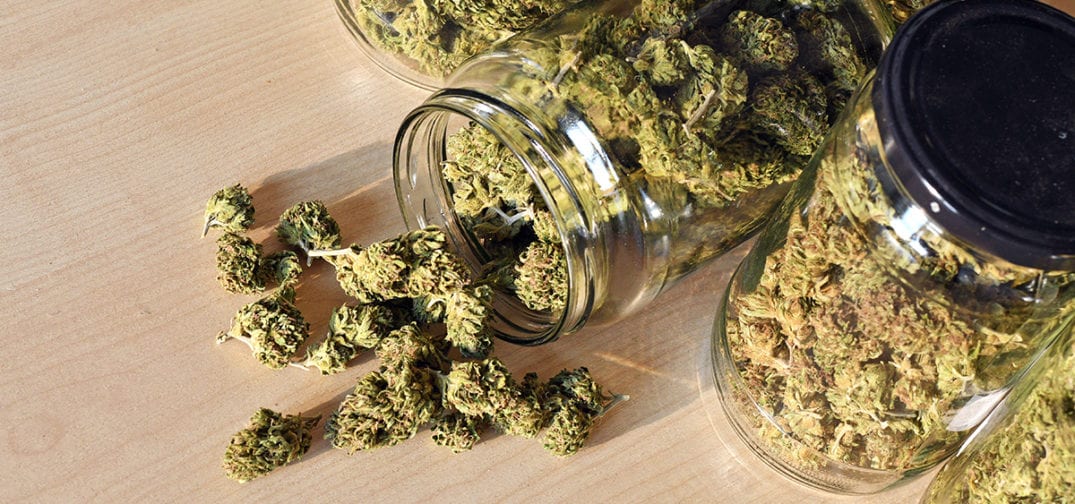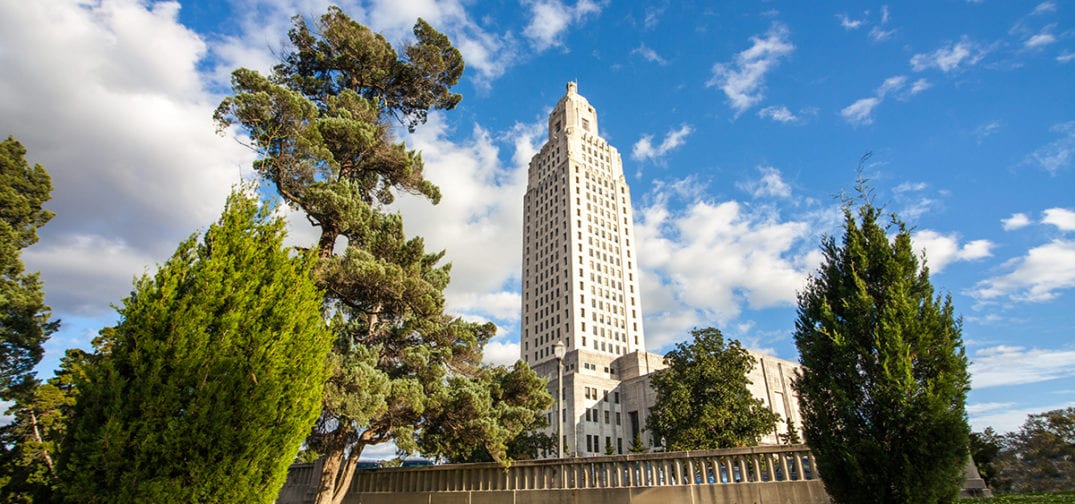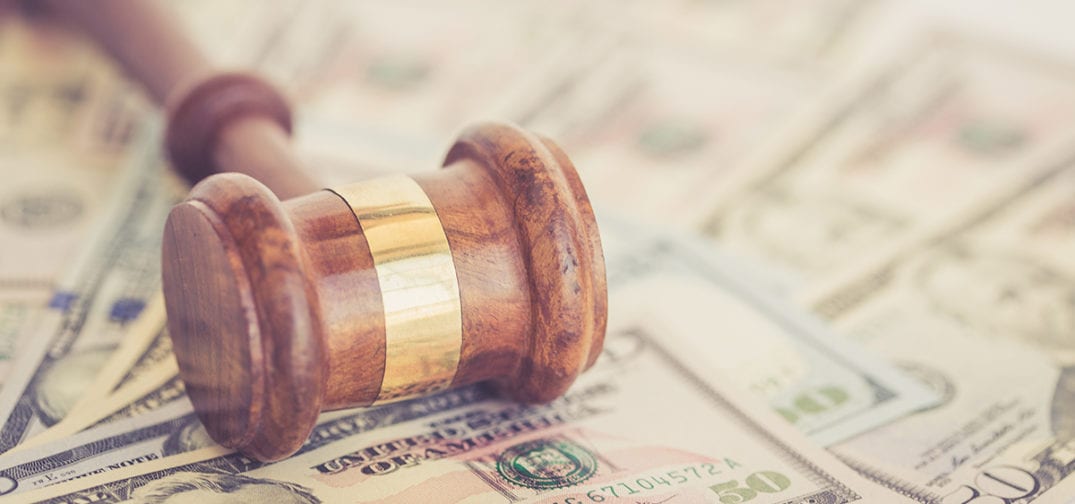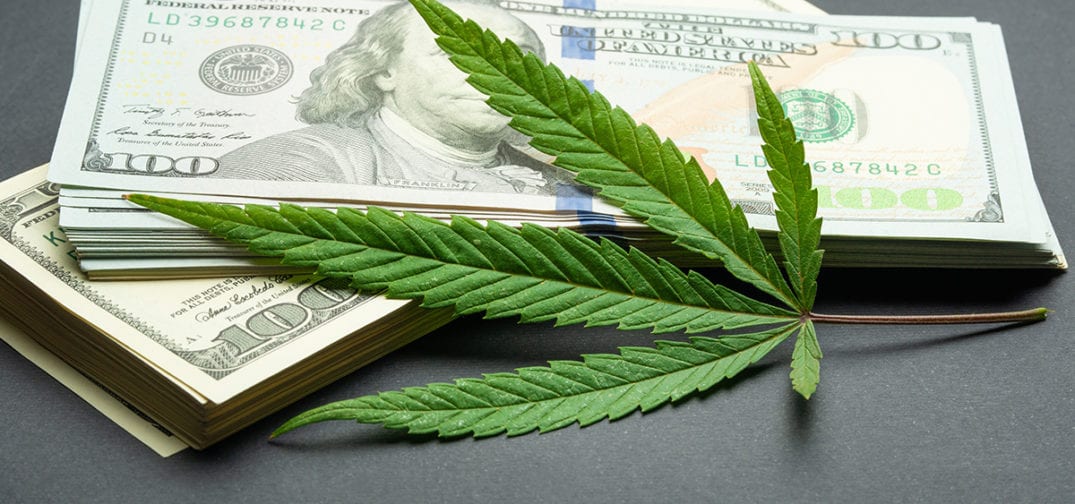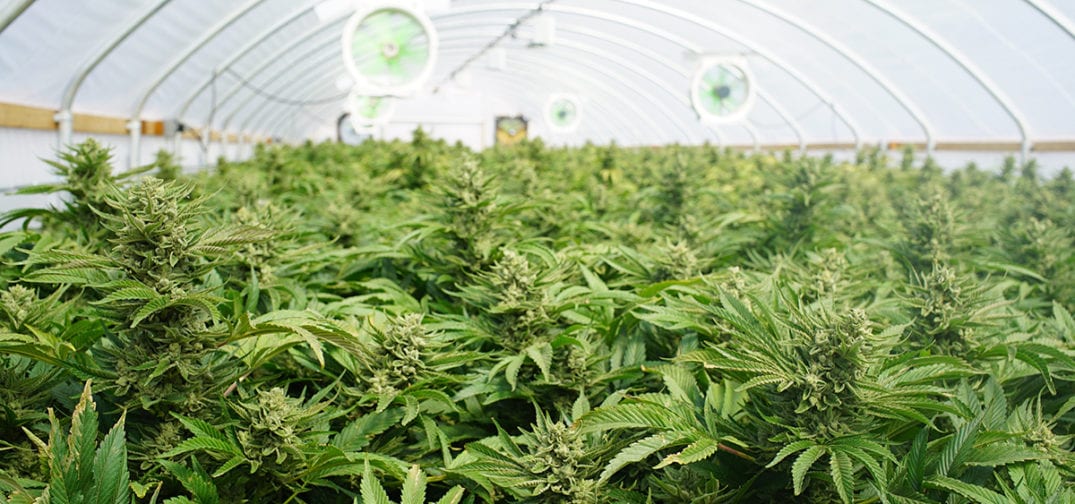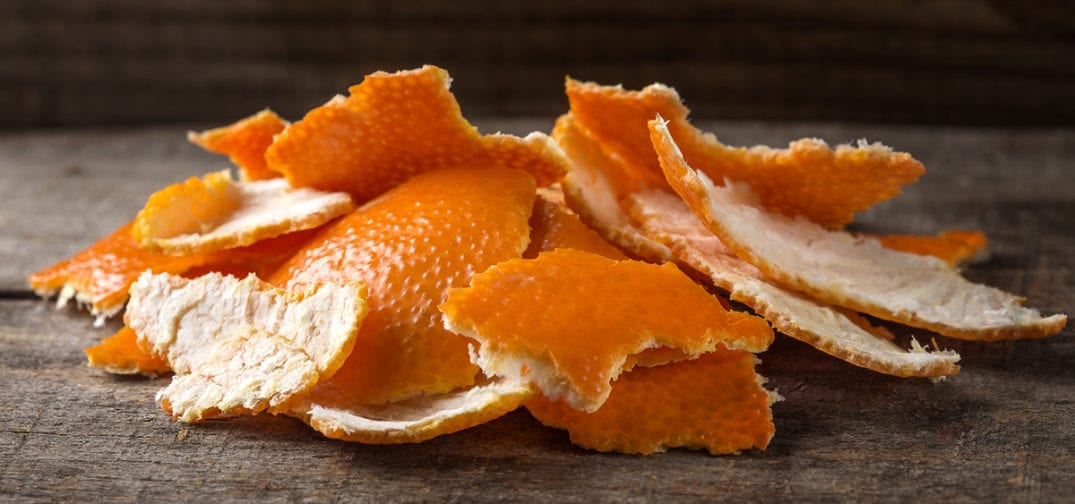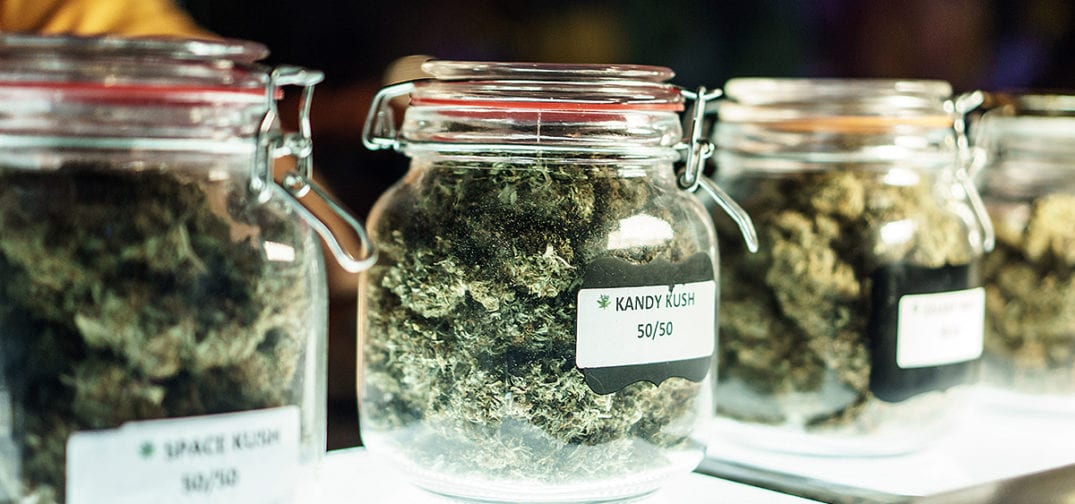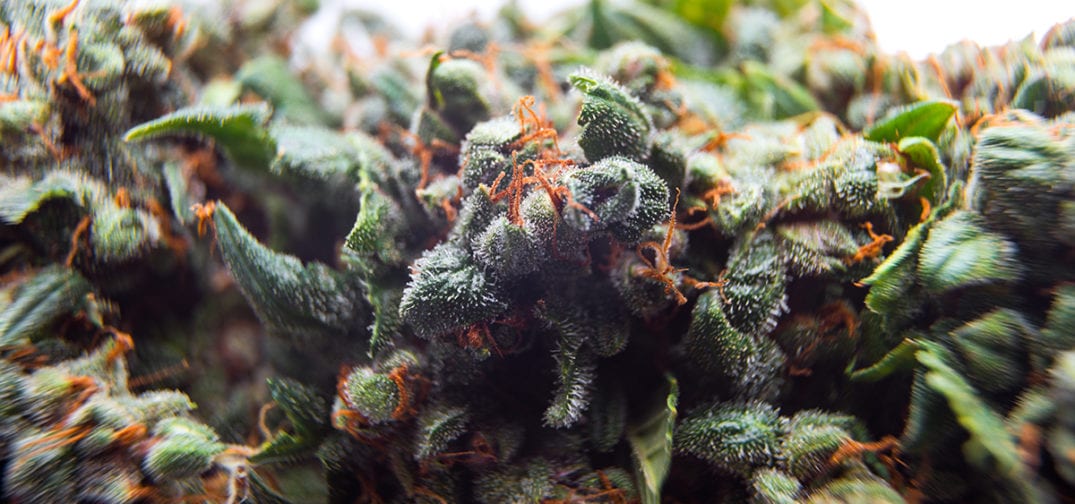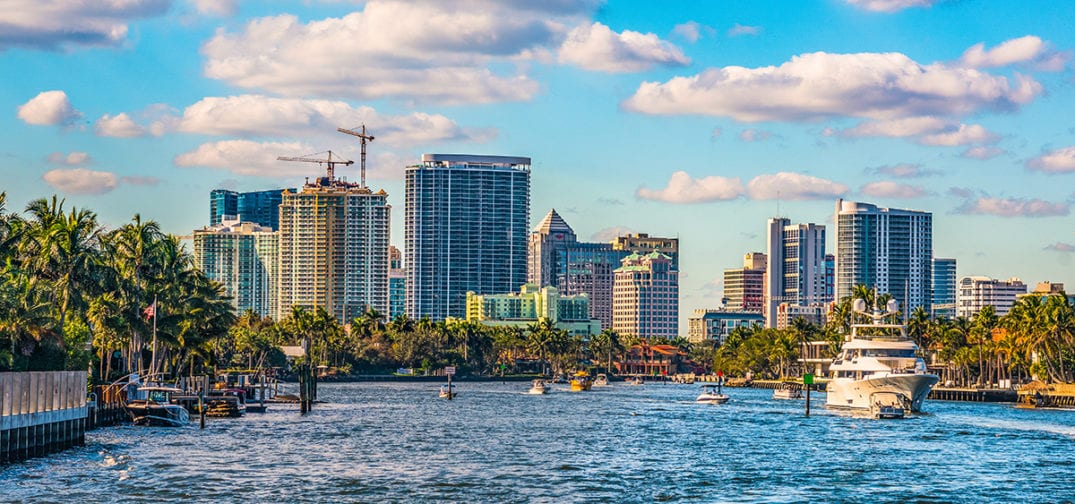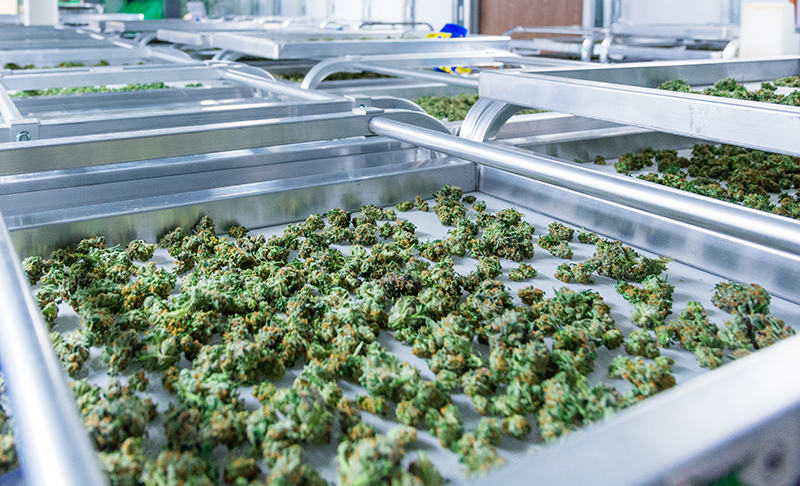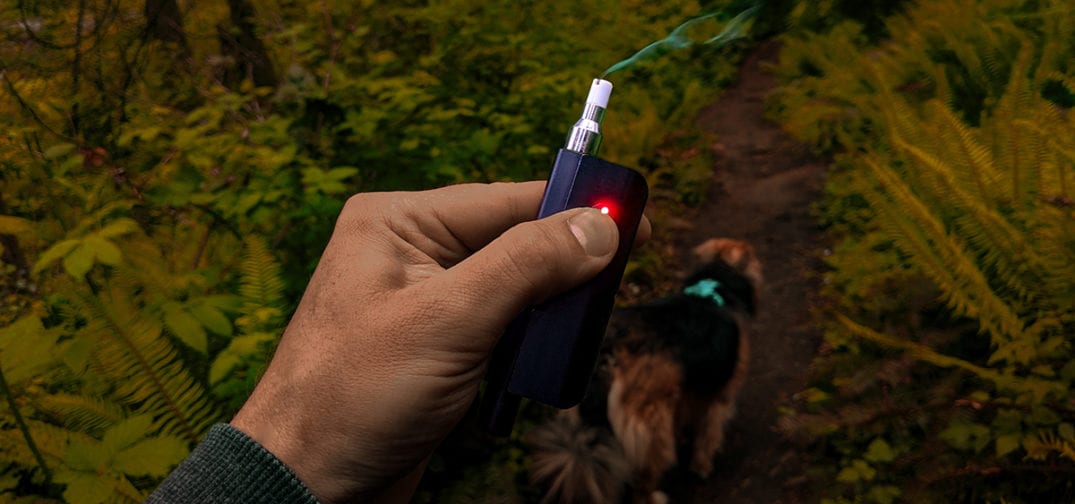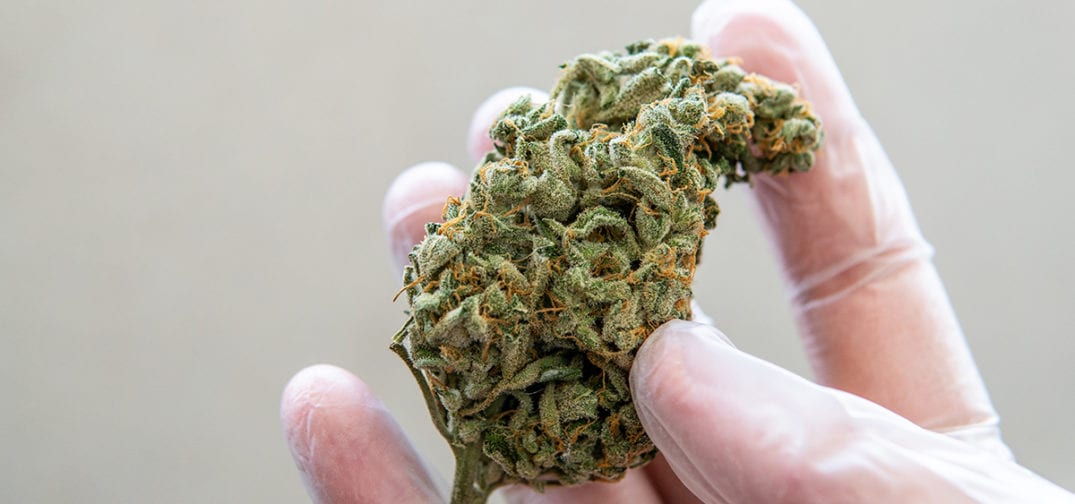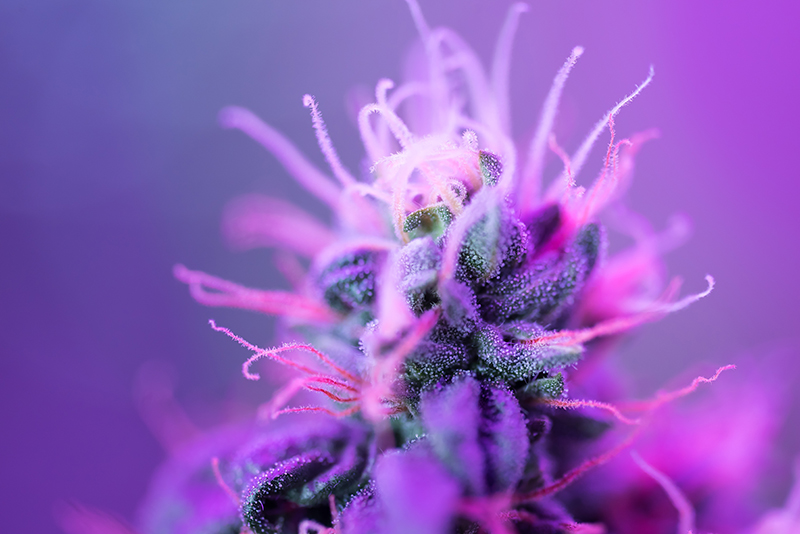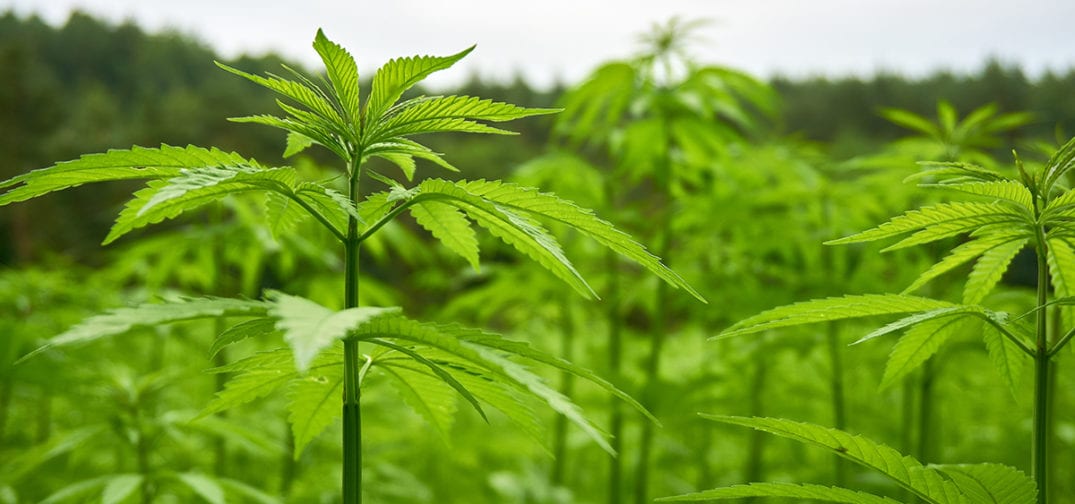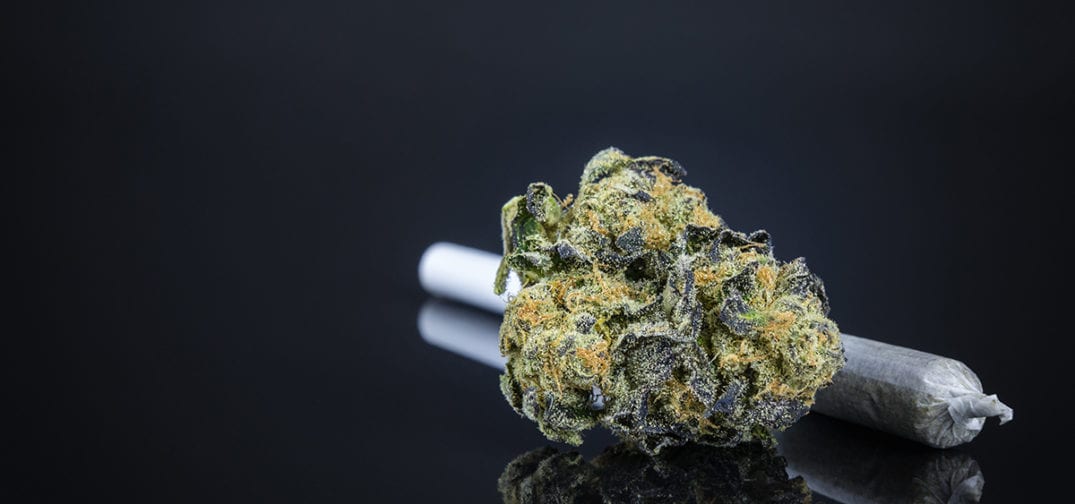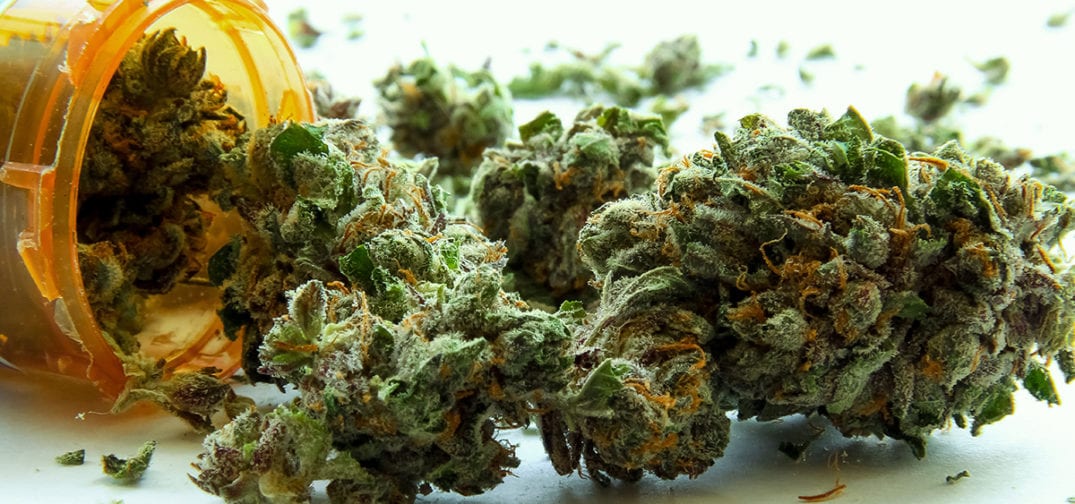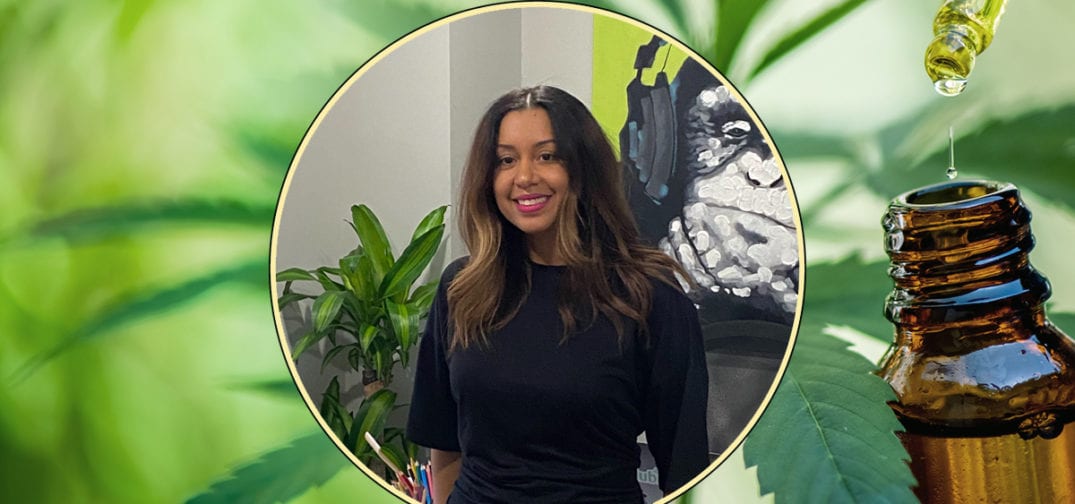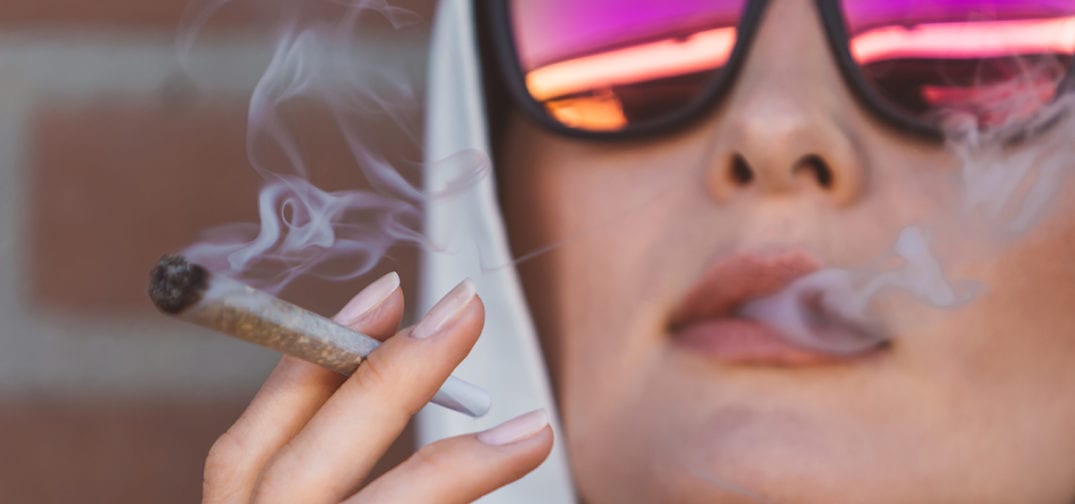For his second appearance on the Ganjapreneur.com podcast, Morgan joins our host TG Branfalt to discuss federal cannabis policy progress in 2020 and in a post-coronavirus world.
During his first appearance on the show, Morgan hinted at the important work that lay ahead for the NCIA — for his return, Morgan shares where he thinks industry lobbyists have succeeded so far, where more progress is needed, how cannabis businesses can utilize responsible messaging to bolster the industry as a whole, and more.
You can tune in and listen via the media player below, or scroll down to read a full transcript of this week’s podcast interview!
Listen to the podcast:
Read the transcript:
Commercial: This episode of the Ganjapreneur podcast is made possible by Evergreen Gateway, a provider of cannabis friendly financial services.
As many cannabis entrepreneurs have experienced firsthand, it can be very difficult to get approval for essential financial services once your bank finds out what industry you’re in. Evergreen Gateway makes it easy for cannabis entrepreneurs to access the financial resources that you need to operate your business. From merchant accounts to cash advances, virtual checking and depository banking, Evergreen Gateway has established solutions that cater to the specific needs of the cannabis industry. Get in touch today at EvergreenGateway.com.
TG Branfalt: Hey there, I’m your host TG Branfalt, and thank you for listening to the Ganjapreneur.com Podcast, where we try to bring you actionable information and normalize cannabis through the stories of ganjapreneurs, activists, and industry stakeholders.
Today I am joined for the second time by Morgan Fox, who is the Media Relations Director for the National Cannabis Industry Association, which represents nearly 2000 member businesses and tens of thousands of cannabis professionals. Fox previously served as the director of communications for the Marijuana Policy P6roject, and he is now a friend of the show, I guess, with a second appearance. How are you doing Morgan?
Morgan Fox: I am doing as well as I guess everybody else is, all things considered. Thanks for having me back on.
TG Branfalt: Hey, great to have you. We always look to you for what’s going on at a federal level. Before we get into all of that, why don’t you remind people what you do and how you ended up in the cannabis space.
Morgan Fox: So I’m the Media Relations Director for NCIA, which basically just involves speaking with lovely people like you a lot, and trying to get the message out about NCIAs federal policy work, the resources that we’re bringing to bear on behalf of our members, and the resources that we’re offering them to help them run best practices and really present the best possible face for the industry.
And it’s been a really exciting time, especially this last a year and a half or so in terms of federal policy movement, even though we are not quite exactly where we want to be yet, obviously we’re getting closer and closer to the ultimate goals of de-scheduling and policies that will treat the industry fairly. And I have to say we’re closer than we’ve ever been before. So this is a very exciting time to be involved in cannabis policy.
TG Branfalt: So in the year and a half since you’ve been on the show, you mentioned there’s been some federal stuff that includes the first-ever House hearing on a standalone cannabis-related bill, that being the SAFE Banking Act. So tell us about what has changed and what’s changed for the NCIA in that last year and a half?
Morgan Fox: Well, a Democratic takeover of the House of Representatives definitely went really far. We had been gaining a lot of support among Republicans, but it was just very difficult to get any sort of hearings before the control of the House changed. And we really saw that last year in true forum. There were just hearing after hearing, after hearing on all sorts of issues related to cannabis and all sorts of bills related to cannabis policy.
As you mentioned, we had a major victory with the SAFE Banking Act. It was the first time that any cannabis-related bill had gotten a vote or been approved by the full House of Representatives with overwhelming bipartisan support. And then we also saw a committee hearing, which was the first of its kind to ever approve a bill to end cannabis prohibition. That was the MORE Act in the House Judiciary Committee. So those two things alone were a really a huge sign of where things are going in terms of congressional movement. We’re really getting to the point of getting past whether or not we should legalize and much more talking about how to do so in ways that undo some of the damage caused by prohibition.
TG Branfalt: So last time we were on the show, we were still sort of wondering about how cannabis policy would play out in the next couple of years of the Trump administration. A lot has happened since then. Jeff Sessions was gone, which was sort of a big deal. And then there was sort of what happened in the recent budget where the executive budget actually pulled cannabis protections, enforcement protections. Has the thinking, I guess, of the NCIA sort of, or stakeholders evolved with regard to this administration as there hasn’t been sort of the enforcement that many people anticipated in the early days of the administration?
Morgan Fox: Well, clearly we didn’t see any sort of massive move towards crackdowns when the Cole memo was rescinded, either under Sessions or under the new attorney general, Barr. So that’s definitely a good sign. And the fact that we’re seeing much more discussion in Congress is an excellent sign.
I think that in terms of the administration, cannabis policy remains a pretty low priority. We’re getting kind of mixed signals from both the president, as we saw in some videotaped statements, as well as some really negative statements coming from his campaign manager. So I think that we’re kind of in a position where we have to wait and see until some legislation actually gets to Trump’s desk before we really know exactly what’s going to happen. And since the SAFE Banking Act seems to be the bill that is most likely to reach his desk first, we’re pretty confident would be able to be something that they could support. It’s a supportive of small businesses, it’s supportive of banks and supportive of public safety and transparency.
I think that this is a slam dunk for the administration considering how much support this bill has and how much support cannabis policy reform has overall, and it’s an opportunity for Congress, particularly the Senate to show the American people that they can keep getting work done, despite the fact that there are a lot of distractions and a lot of other issues that they have to deal with.
TG Branfalt: Right now, you and I, we joked before we hit record, just about sort of living this quarantine life. This is being recorded in early March and we’re still in the early stage of this sort of coronavirus outbreak. How much will this pandemic sort of declaration, national emergency declaration, have on sort of legislation such as the Safe Banking Act moving forward? Does it have the potential to really stomp out any sort of success that has been made this session?
Morgan Fox: I think it will slow things down, but not to the point where it’s going to halt any sort of progress. Like I said, Congress is still very eager to show voters that they can continue doing their jobs, despite all the pressures that are being put on them externally. While we might not be able to get a hearing scheduled immediately, it seems fairly likely that this isn’t going to last forever. It might last for eight weeks, it might last for 10 weeks, it might last for 12 weeks. But despite the fact that there’s an election coming up and that there’s a lot of other issues that need to be worked on, we’re pretty confident that we can still continue to see progress, at least getting through some hearings and markups, hopefully. And we know that this is not going to be the end of this issue being discussed in the public sphere as we get closer to November, it’s definitely going to come up more and more.
TG Branfalt: So I want to switch gears a little bit and talk to you about lobbying. Especially as more states have gone online, we have seen sort of this topic rise to the top when people are discussing sort of how bills are being pushed through in the state level. And many advocates are actually anti-lobbying. They say that it gives more power to large corporations and it doesn’t focus on the small businesses. What do you say to those people who are critical of lobbying efforts?
Morgan Fox: Lobbying efforts are absolutely necessary. And it’s important to remember that anyone can lobby. NCIA once a year puts together our annual lobby days, we’ve got our 10th one coming up, although it may be pushed back a little bit because of the current health crisis, where we get over 300 of our members to come out and set up meetings with them with lawmakers. So anybody can do this. NCIA the only cannabis trade association with a full time on the hill, in house lobbying team, that’s representing thousands of businesses and primarily small businesses.
So, if you don’t tell lawmakers what you want, they’re not going to give you what you want. You have to be able to talk to them. I can understand the concerns that some people have with the fact that there are bigger companies putting a lot of money into lobbying right now, but without that, progress is going to be a lot slower than it would be otherwise. And it’s important to recognize that a lot of these companies do have the best interest of consumers and the general public in mind when it comes to the ways in which we end prohibition. And for the ones that don’t, it’s very easy to influence them with the consumer spending dollars.
TG Branfalt: So of all of the bills that are in Congress right now aimed at reforms or broadly ending prohibition, and I think that just sort of off the top of my head, I can count at least three, is there one that the NCIA is supporting, is stronger than the others perhaps?
Morgan Fox: The MORE Act is definitely making a lot more progress than any of the other pieces of legislation. And it very explicitly addresses ways to help undo some of the damage caused by prohibition, specifically expungement, and providing resources for community reinvestment, and allowing the small business administration to be able to provide funds for businesses owned by women and minorities. So, that’s the one that seems to be the strongest bill and have the most political support in the House. That’s the vehicle that is really going to move as we’re going forward.
And we’ve already seen that even though it still has many other … I think it’s got five more committees that it has to get through before it can get to a House vote, we’re starting to see a lot of those committees waive their jurisdiction, most recently, the Small Business Administration Committee, so that we can push this bill a little bit farther down the road during the session, and hopefully, have it come up for a full House vote in 2021. Right now, that bill is not really moving in the Senate, but neither is the States Act, which is significantly weaker in terms of the protections that it creates and the restorative justice arms that it employs.
TG Branfalt: And when you say that they waived their jurisdiction, I know what that means, but for the average listener, could you explain why that’s important or why that is sort of considered a success even though they’re not positively affirming the legislation?
Morgan Fox: Well, yeah. So any bill that’s going through Congress will have to move through several committees based on what the bill actually affects. So in the case of the MORE Act, there were six or seven committees that would have jurisdiction, which means that in order for them to move farther down the road towards a full House vote, that committee would have to hold a markup on that bill and then approve it and move it onto the next committee. So when they waived their jurisdiction, it basically means that they’re trying to push this bill as quickly as possible, and don’t have anything that they really need to say about it or amend to it.
We’re hoping that at some point in this process, we can work with lawmakers to amend the language so that it contains regulatory structure similar to what we laid out in a white paper that we released in October that basically divides cannabis products into four different lanes and then assigns a federal agency to have primary regulatory control over that, whether that’s the FDA or the Alcohol and Tobacco Tax and Trade Bureau. So hopefully, we’ll be able to get that language added to that bill at some point, so that when it does pass, there’s not five to 10 years of regulatory agency infighting, trying to determine who’s going to own this issue and how they’re going to regulate it. They’ll already have the blueprint set as soon as the law goes into effect.
TG Branfalt: That’s really quite interesting. These white papers that you guys make, is this one of the things that the lobbyists that you have go around and put in front of lawmakers?
Morgan Fox: Oh, absolutely. So we develop them with the input from our staff and our allies, as well as our policy council, which is made up of industry and policy expert area leaders. And then once we publish these, then our lobbying team will use those to help add to their general lobbying strategy so that we can provide lawmakers, as well as people in the industry, and state little regulators, and potential future federal regulators with the best information possible.
TG Branfalt: So I wanted to sort of ask you about messaging. I’m a communications professor at a SUNY school, and so one of the things we talk about is crafting messaging. As the communications director, and you’ve been in this industry in communications for a long time, how do you work on crafting messaging to combat the voices of prohibitionists such as Smart Approaches to Marijuana or SAM?
Morgan Fox: Well, one of the lucky things on our side is that we’ve got the facts and science on our side. It’s a lot easier to make your point when you’re reasoning is actually correct and not based on pseudoscience or cherry-picking data to try to scare people. Unfortunately, sometimes those tactics really work well. So particularly when you’re talking to more conservative lawmakers or a more conservative audience, it’s really good to not necessarily bash people over the head with the facts, but frame things in a public safety lens and bring up human stories about the costs of prohibition, as well as human stories about the successes of regulation and how we’re taking money out of the illicit market and basically defunding cartels. That sort of messaging really resonates with people who are either opposing or on the fence on these issues. Public safety is a huge aspect of cannabis policy reform and it’s something that if you focus on can really make a difference for people that think of cannabis and only think of criminality or moral failings,
TG Branfalt: How are your messages received by more mainstream news outlets? And I see you quoted in papers of record and not just sort of cannabis news organizations. Do you find you get a lot of pushback from editors and publishers in your interviews with them and your interactions with them?
Morgan Fox: I think that it really varies depending on the particular media outlet. The way in which reporters are writing about this issue has changed dramatically in the decade-plus that I’ve been doing this. And it’s really wonderful to see that reporters are not only getting assigned to this beat more often, which forces them to learn more about it, but that a lot of people are really going out of their way to figure out the best ways to really write about this story and are focusing much more on advocacy work, and success stories, and the science behind it, instead of just giving it a platform for government agencies or prohibitionists. So that’s definitely been a positive.
Now, of course, there are still some people that want to get the really clickbaity stories and the best way to do that is to either exaggerate negatives or really try to focus on fear tactics, and that I think is probably going to be something that we have to deal with for quite some time, but it’s gotten a lot better, especially in the last couple of years. Really the big problem with all of the interest in this issue is that a lot of times reporters will get assigned to these stories that don’t really know the issue all that well and so it was very easy to fall back on both stigmas and tropes.
TG Branfalt: What is your opinion on how, from the mainstream media, let’s talk about television news media, the CNNs, the MSNBCs, the FOX Newses, what’s your opinion on how they cover cannabis? Do you notice sort of … I mean, you sort of mentioned the cannabias, do you think it’s sort of worse on these sort of television news shows? And if so, do you think the lack of education or some bias within the organization and its employees?
Morgan Fox: I mean, again, I think it’s really across the board. Even within what you’re just talking about CNN, they’ll do … So, you’ll see a CBS story about the potential dangers of increasing potency, which we know doesn’t really have any science behind it, and then you’ll see something like a Sanjay Gupta piece that goes really in-depth and is really, really solid, excellent reporting. You’ll have people joking about the issue in one talking heads show and people screaming about the issue in another. You can just look at some of the covers that Laura Ingraham and Tucker Carlson has done on this issue to see that canna-bias is definitely still there. It’s certainly not anything rational that you see coming out of this, but there’s a lot of good coverage coming out about it. I think that we saw a lot of that during the early presidential debates when candidates were making really, really strong proclamations about ending prohibition and these positions and the discussion surrounding them were really taken seriously.
TG Branfalt: When you started doing this 10 years ago, we were both of legal voting age and can probably remember the debates from 2010 or at least the run-up. Does it surprise you that it has taken such a center stage?
Morgan Fox: I’ve been surprised at the early and extreme attention paid to it by the candidates, even if media wasn’t necessarily covering it as much as they were covering some of their other positions. I think it was really telling about where we are and also about the Democratic Party machine realizing that this is an issue that two thirds of Americans agree on. That’s something that you’re not really going to find in any other issue.
If you want to increase your polling, even if it’s not the number one issue for voters, it’s a real easy way to get a little bit more support because people are sick of prohibition. I think that the surprising thing was that people were actually not only realizing that this is how the electorate feels, but actually going out of their way to address it instead of treating it like a third rail issue.
TG Branfalt: Do you think that in the next Republican primary that occurs, whether it be the next election cycle, it would be actually one way or another, do you think that it’ll take the same sort of early-stage… The focus will be put on it in an early stage, because we’re seeing more and more Republicans in polls support legalization? Or do you think that there’s other issues that are more important to Republicans so that the stance of the candidate on cannabis won’t matter as much?
Morgan Fox: No, I think that’s difficult to tell, but all the most recent polling has shown that a majority of younger Republicans support cannabis policy reform. If they’re interested in activating that voter demographic, then it’s absolutely necessary for them to not only just revisit their positions on this issue, but also to highlight them.
TG Branfalt: I want you to weigh in on this debate. I actually, I joined a podcast a couple months ago, and this was brought up. I’ve had conversations with this with people I’m close to, people who… My students, when we’re talking about messaging and bias, what’s your take on marijuana versus cannabis and messaging?
Morgan Fox: I generally lean more towards cannabis just because it’s a little bit more accurate, and it doesn’t have a lot of the racialism and stigma that is attached to marijuana, in terms of its historical usage. At the same time, I don’t necessarily think that it’s a word that should be constantly avoided at all costs or that it makes you a bad person for using it. I just don’t think that it should be used exclusively, and you should try to use cannabis wherever you possibly can, because it’s more accurate, and it doesn’t carry that that added unfortunate historical weight to it.
That being said, there are some audiences where they don’t know what cannabis means. I think it’s important that you really have to tailor your message so that it will at least to be the most recognizable to your targets.
TG Branfalt: What about slang terms, other slang terms, pot, weed, that whole thing, because when I see it in a headline or something, like I feel automatically it’s clickbait or bias in some form, is that… Am I alone there?
Morgan Fox: I don’t like seeing it, but at the same time, I understand that writers can’t necessarily use the same word over and over again, and they want to shake it up a little bit. I try to be forgiving, but I never use them myself.
TG Branfalt: I prefer trees, but I would never use it in writing. In your opinion, should cannabis businesses big and small have a dedicated communications person? Do you think that that role is overlooked when people start building their company?
Morgan Fox: Well, I think it depends on what the company is trying to do. Messaging, I think, is definitely important. When you’re running a commercial company, you have to also take into account things like branding and how you’re going to be targeting your products. I think that it’s important to incorporate the lessons that are being learned from sort of the broader policy and movement world and incorporate those lessons into branding and marketing at the very least. Whether or not you’re going to have somebody on staff that’s full time, writing press releases and talking to reporters, I think that really depends on what sort of a profile you want your business to have.
From my end though, I actually really like it when a member businesses are interested in talking to the media and presenting a good public face for not only their own business, but the industry at large. They actually do take time to think about the messaging and confer with people in the movements and advocates and lobbyists to see how they can tweak that messaging and make sure that it’s representing the best interests of the industry.
TG Branfalt: The last thing I want to talk to you about is possibly the last cannabis conference that’s going to happen this year. With the rate that things have been postponed, canceled without any sort of makeup date, tell me about February’s NCIA Northeast Cannabis Conference. How was the attendance over last year, vendor interest, just let me know how that went down?
Morgan Fox: Well, I don’t have the exact numbers in front of me, but we actually retooled this particular conference. It used to be called the Seed to Sale Show, which was much more concentrated on B2B work and on a national scale. For this one, we pared it down to be a much more… I wouldn’t say pare it down, but we focused it to be much more of a regional interest show. We are hopefully going to be able to do that for several other events throughout the year if this public health crisis is able to stabilize.
It was a great event. We had hundreds of exhibitors, thousands of attendees throughout the course of the weekend, more than 150 speakers and panelists, had really great keynotes, presented information there from a meeting of law enforcement and industry stakeholders and social justice activists to try to figure out how to deal with the illicit market in creative and humane ways, as opposed to just punitive and arrests. There were all just a lot of opportunities, not only to show off what your business is doing, but learn about what’s going on in terms of business technology, best practices and policy issues.
TG Branfalt: What are you hearing from your member businesses right now with regard to coronavirus? I’ve read a couple of reports that dispensaries are getting a run on them, just like regular businesses are. There’s some concern about are some of these conferences going to be able to occur? The NoCo Hemp Expo, Hash Bash, Michigan’s 49-years running event, what are you hearing from your member businesses with regard to what’s going on with coronavirus?
Morgan Fox: Well, some of the concerns are based on the supply chain with there being quarantines and shipment stoppages happening from overseas. Some of the problems… Luckily though, we’ve seen US-based businesses really step up, and we see the supply chain start to diversify and become a little bit more domestically centered. I think that will probably continue for the foreseeable future.
In terms of actual operations, a lot of the direct-to-plant businesses don’t necessarily require there to be large concentrations of people. It’s usually just a couple of people. But it’s still important for those businesses to follow whatever state, local and federal guidelines there are in terms of making sure to ensure public safety, and make sure that social distancing is taken into consideration until this pandemic is under control. And all the recent estimates that I’ve seen are that it’s looking like eight weeks. So that’s not insignificant by any stretch of the imagination, but it’s not something that we can’t all get through together.
I think that we’re probably going to continue to see brisk business going at cannabis retailers until all storefronts are shut down, which hopefully won’t happen. But as long as those businesses are putting extra safety and sanitary measures in place, hopefully we won’t have a problem with that. And I think that right now we’re just in sort of a holding pattern where we have to just wait and see what’s going to happen. So far we’ve seen delivery services start to see a bump from this right now, which is pretty obvious why. And I think we could see that for the duration as well.
TG Branfalt: Hopefully that leads to states where they don’t have delivery or they have pending delivery bills that they sort of put maybe tag emergency legislation on these things which would allow it meant in many states to sort of take effect immediately.
Morgan Fox: Absolutely. Particularly in some medical states that don’t have any form of delivery. I think that it’s going to be really important to be able to get medicine to people who might not be mobile or immunocompromised.
TG Branfalt: Absolutely. So my last sort of question for you is sort of going back to the messaging thing. What advice would you have for companies, for new companies who aren’t established, with regard to early-stage messaging for their business when it comes to speaking with the press when they open or that sort of thing?
Morgan Fox: Aside from just generally trying to be as professional as possible, really focus on being a good member of the community. And that goes beyond messaging, that actually goes into practice. You have to make efforts to build up other businesses in your area. You have to make efforts to be a model for public safety and for security, and you have to be involved in your community and give back to it and make sure that you’re helping the people in your community who may have been harmed by the war on drugs in at least some fashion. And I think that if you put those plans in place, then you have a great opportunity to be able to craft your messaging and the way in which you communicate with both the media, as well as the rest of the community, in a really positive fashion.
TG Branfalt: So I really appreciate you coming on again, giving us sort of the legislative update, what’s running through legislature and really getting into some details with me on sort of the messaging thing, which, again, I teach it so I’m really sort of passionate about sort of communication and communication techniques. Where can people find out more about the work that the NCIA does?
Morgan Fox: Well, our website is thecannabisindustry.org, and we’re also on Facebook, Twitter, and Instagram. I also highly recommend that all your listeners reach out to their federal senators and ask them to fast-track the House-approved SAFE Banking Act so that we can get this legislation out of the Senate and get it to the president’s desk as swiftly as possible.
TG Branfalt: That’s Morgan Fox, the media relations director for the National Cannabis Industry Association. Thank you so much, Morgan, for being on the show. Hopefully we can get you on not in another year and a half and when this all blows over and it’s business as usual.
Morgan Fox: Yeah, hopefully. I really appreciate it. It’s great talking to you.
TG Branfalt: Thanks. You can find more episodes of the Ganjapreneur.com Podcast in the podcast section of Ganjapreneur.com and in the Apple iTunes store. On the Ganjapreneur.com website, you’ll find the latest cannabis news and cannabis jobs updated daily, along with transcripts of this podcast. You can also download the ganjapreneur.com app in iTunes and Google Play. This episode was engineered by Trim Media House. I’ve been your host, TG Branfalt.

